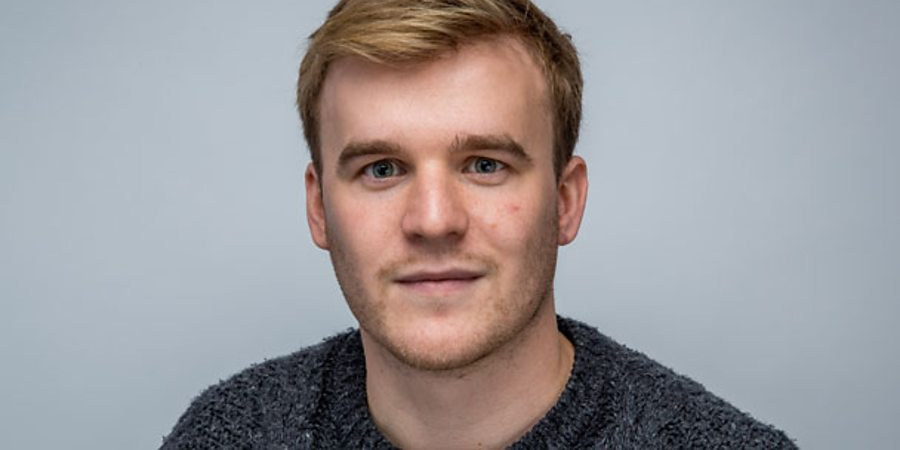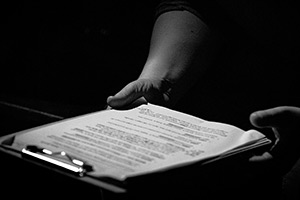James Farrell interview

Top TV comedy producer James Farrell gives us an insight into what his job entails...
Hi James. How did you get into the TV industry?
Unfortunately there's no easy route into TV - you have to really want it. Like every producer, I started at the bottom and worked my way up. I spent every university holiday working for free on commercials and short films, or as a runner on entertainment shows.
I learnt how Simon Cowell likes his coffee (milk and one sugar, served with a fake smile) and once spent an afternoon on my knees picking daisies out of a lawn for a director who "didn't want any daisies" in his film (his film bombed despite my best efforts on the daisy front). After university I applied for a job at the BBC and I'm somehow still here.
What does the role of a producer entail?
Working as a producer is like being the project manager on an Apprentice task - it's different every week, most people think you're an idiot, and if you balls it up you'll probably get fired.
When you're in development, the job is about nurturing an environment where talent can flourish, so as to ultimately present a channel with an un-turn-down-able proposition. This involves constantly meeting writers, directors, actors, comedians; reading scripts, treatments, pitches; watching plays, sketch shows, stand-ups - and then working hard with people you love and ideas you love.
When you're in production, it's about not screwing it all up. Taking the brilliant idea that you've sold - and making the best possible version of it.
You want as many people as possible to watch it, and for the broadcaster to buy another ten series, but ultimately you want to be proud of your name being at the end of the credits.
For those that want to get into producing too, what do you think the most important skills are to have / develop?
You need to be organised (but not boring). You need to be confident (but not cocky). You need to have a strong vision about what you want to make (but also be good at listening to other people's opinions).
You need to have a thick skin (but also stand up for ideas you really believe in). You need to be prepared for shows to take five years to get commissioned (but also to have to shoot a pilot with a fortnight's notice). You need to have a partner who's prepared not to see you for weeks on end (or ideally, one who prefers that).

What are the biggest challenges? Managing budgets? Time? Talent?
Producing is a balancing act of all of those things, really. There's no point coming in on schedule with the happiest cast and crew in the world, but a million pounds overspent. Or on budget with a writer who never wants to work with you again.
Something it often takes time to realise is that, however committed you are to a project, it's impossible to do everything yourself - you need to surround yourself with brilliant people, and establish an environment for them to be as brilliant as possible. And buy everyone cake. And remember the names of their kids. How is Lenny by the way?
How much of your time is spent developing projects that never make it to the screen?
I can't think of a single project I've been involved with that I'd describe as a waste of my time. Even if it hasn't seen the light of television day, I've generally ended up working with a lot of the talent (be they actors, writers or directors) on subsequent projects.
I tend to keep my development slate reasonably small - I'd rather be able to devote all of my attentions to a limited number of projects: be more of a boutique hotel than a massive Holiday Inn. I'm lucky that I've had the odd thing commissioned along the way, but then again I've got compromising photos of Shane Allen to use as leverage.
Can you ever tell if a show is going to be a hit or not before it's filmed?
If I could do that then I'd be answering these questions from a medium-sized yacht in the Bahamas. Nobody ever knows where the next hit's going to come from (and you shouldn't believe people who claim to!) - the best you can do is to trust your instincts.
I suspected Mrs Brown's Boys would be popular but I don't think anyone could have predicted the jaw-dropping magnitude of its impact - it's a once-in-a-generation hit that I've been privileged to play a small part in.
How do you pick up work? Is it assigned to you, or do you have to go seeking it out?
The vast majority of shows I work on are ones I've been part of since the ground floor - that's the way I prefer to operate, and BBC Studios has given me the freedom to work like that. Some freelance producers are drafted in to work on existing propositions, but I generally prefer to limit myself to shows I've developed up. Likewise, I don't like to give up my own babies for adoption, as it were.
You're producing the new version of Are You Being Served?. That's a high-risk role! What made you accept, and what have you done to try and ensure that it's well received?
It wasn't a case of "accepting" - as soon as the Landmark Sitcom Season was conceived I worked hard to ensure that Grace Brothers would grace our screens again. And it certainly hasn't felt like a high-risk role; high stakes, perhaps. Are You Being Served? is one of the most successful sitcom franchises in TV history, and we've got a premiere league cast, and an exceptional writer born for the role in Derren Litten. I have no doubt whatsoever that anyone who's been tickled by Mrs Slocombe's pussy in the past will agree we've done the original proud.
What advice would you give someone who is looking to work in broadcast comedy?
Learn to fail. Don't give up. If you think it's funny, it's funny. Don't be a dick. Simon Cowell takes milk and one sugar.
What's up next for you James?
My production diary is booked up for the next year or so with some brilliant shows - I'm currently in post-production on a brand new BBC Two pilot then launching straight into the Mrs Brown's Boys live special.
Then I've got a bunch of other exciting shows - I generally get into trouble by blabbing about things that haven't been announced yet, so I'm going to bite my tongue at this point.
Plus, every spare moment is spent developing up new projects so send me your scripts and ideas - I promise that TV isn't the closed shop some people think it is!
James Farrell is an independent producer and showrunner. Previously Head of Comedy at BBC Studios, his credits include French & Saunders; Crims; and Our Ex-Wife with Catastrophe director Ben Taylor; and the smash-hit comedy Mrs Brown's Boys.
This article is provided for free as part of BCG Pro.
Subscribe now for exclusive features, insight, learning materials, opportunities and other services for comedy creators.


